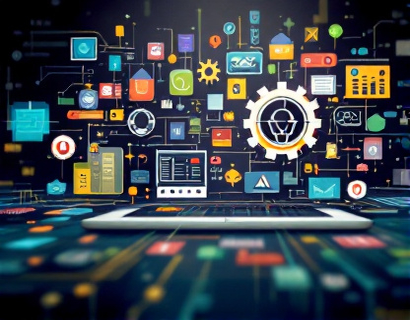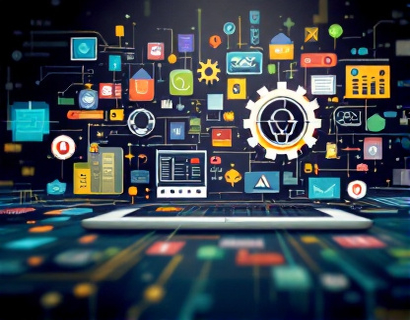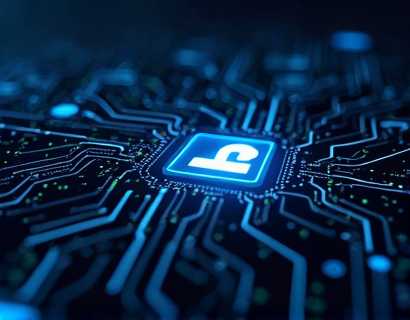Seamless AI and Blockchain Integration: An Essential Guide for Business Digital Transformation
The integration of Artificial Intelligence (AI) and blockchain technology represents a pivotal shift in the landscape of business operations and digital transformation. As companies strive to stay competitive in an increasingly digital world, understanding how to seamlessly integrate these two cutting-edge technologies is crucial. This guide serves as an essential resource for business leaders and professionals aiming to harness the full potential of AI and blockchain to streamline operations, enhance security, and unlock new growth opportunities.
Understanding AI and Blockchain
Before delving into the integration strategies, it's important to grasp the fundamental concepts of AI and blockchain. AI refers to the simulation of human intelligence processes by machines, particularly computer systems. These processes include learning (the acquisition of information and rules for using it), reasoning (using rules to reach approximate or definite conclusions), and self-correction. AI technologies encompass machine learning, natural language processing, and computer vision, among others.
Blockchain, on the other hand, is a decentralized digital ledger technology that records transactions across multiple computers in such a way that the registered transactions cannot be altered retroactively. This technology ensures transparency, security, and immutability of data. The combination of AI and blockchain can lead to innovative solutions that enhance data integrity, automate complex processes, and provide robust security measures.
Benefits of AI and Blockchain Integration
The synergy between AI and blockchain offers numerous benefits for businesses. One of the primary advantages is enhanced security. Blockchain's inherent properties of decentralization and cryptographic hashing make it an ideal partner for AI systems that handle sensitive data. By storing AI model parameters and data on a blockchain, businesses can ensure that the data remains tamper-proof and secure from unauthorized access.
Another significant benefit is improved efficiency. AI can automate repetitive and time-consuming tasks, while blockchain can streamline processes by eliminating intermediaries. For instance, in supply chain management, AI can predict demand and optimize inventory levels, while blockchain can provide transparent and traceable records of transactions, reducing fraud and errors.
Moreover, the integration of AI and blockchain can lead to innovative business models. For example, in the financial sector, smart contracts on blockchain can be combined with AI-driven analytics to create more efficient and secure trading platforms. This not only reduces operational costs but also enhances customer trust and satisfaction.
Challenges in AI and Blockchain Integration
Despite the numerous benefits, integrating AI and blockchain comes with its own set of challenges. One of the primary challenges is the technical complexity. Both AI and blockchain are advanced technologies that require specialized knowledge to implement effectively. Businesses need to invest in skilled personnel or partner with technology providers to bridge the knowledge gap.
Another challenge is the issue of scalability. Blockchain networks, especially public ones, can face scalability issues due to their consensus mechanisms and data storage requirements. Integrating AI, which often involves large datasets and computationally intensive tasks, can exacerbate these issues. Solutions like sharding, off-chain processing, and layer 2 protocols can help mitigate scalability concerns.
Data privacy and compliance are also critical considerations. While blockchain provides transparency, it can conflict with the need for data privacy in certain industries. Businesses must ensure that their integration strategies comply with regulations such as GDPR and HIPAA. Implementing zero-knowledge proofs and other privacy-preserving techniques can help address these concerns.
Strategies for Seamless Integration
To successfully integrate AI and blockchain, businesses should adopt a strategic approach. Here are some actionable strategies to consider:
- Conduct a thorough needs assessment: Identify specific pain points and areas where AI and blockchain can add the most value. This could range from supply chain transparency to fraud detection in financial services.
- Build a cross-functional team: Assemble a team with expertise in AI, blockchain, and the specific industry domain. This team should collaborate closely to ensure a holistic approach to integration.
- Start with a pilot project: Begin with a small-scale pilot to test the integration in a controlled environment. This helps in identifying and addressing potential issues before a full-scale deployment.
- Leverage existing blockchain platforms: Utilize established blockchain platforms like Ethereum, Hyperledger, or Corda, which offer robust frameworks and tools for integrating AI applications.
- Focus on data management: Ensure that data used for AI models is securely stored and managed on the blockchain. Implement data governance policies to maintain data integrity and compliance.
- Invest in continuous learning: The fields of AI and blockchain are rapidly evolving. Encourage ongoing education and training for the team to stay updated with the latest advancements and best practices.
By following these strategies, businesses can navigate the complexities of integration and unlock the full potential of AI and blockchain.
Case Studies and Real-World Applications
Several companies have successfully integrated AI and blockchain to drive innovation and efficiency. One notable example is IBM, which has developed a blockchain-based platform for supply chain management. By combining AI analytics with blockchain's transparency, IBM helps businesses track products from origin to destination, ensuring authenticity and reducing fraud.
Another example is the use of AI and blockchain in the healthcare sector. Companies like Medibloc have created a blockchain-based platform for electronic health records (EHRs). By integrating AI for data analysis and pattern recognition, Medibloc enhances patient care and ensures data security and privacy.
These case studies demonstrate the practical applications and benefits of AI and blockchain integration, providing valuable insights for businesses looking to follow suit.
Future Trends and Predictions
The future of AI and blockchain integration is promising, with several trends shaping the landscape. One trend is the rise of decentralized AI (DAI), where AI models are trained and deployed on decentralized networks. This approach enhances privacy and reduces the risk of data breaches. DAIs leverage blockchain's decentralized nature to create a more resilient and secure AI ecosystem.
Another trend is the increasing adoption of AI-powered blockchain governance. As blockchain networks grow, managing and governing these networks becomes more complex. AI can assist in monitoring network activity, detecting anomalies, and automating decision-making processes, ensuring the smooth operation of blockchain systems.
Additionally, the convergence of AI, blockchain, and the Internet of Things (IoT) is expected to drive significant innovation. IoT devices generate vast amounts of data, which can be processed and analyzed using AI. Blockchain can ensure the secure and transparent transmission of this data, creating a robust and interconnected ecosystem.
Conclusion
Integrating AI and blockchain represents a transformative opportunity for businesses looking to enhance their operations, security, and growth potential. By understanding the benefits, addressing the challenges, and adopting strategic integration approaches, companies can navigate the digital transformation journey with confidence. As the technologies continue to evolve, the potential for innovation and value creation is immense. Embracing this integration is not just a choice but a necessity for businesses aiming to thrive in the future.










































